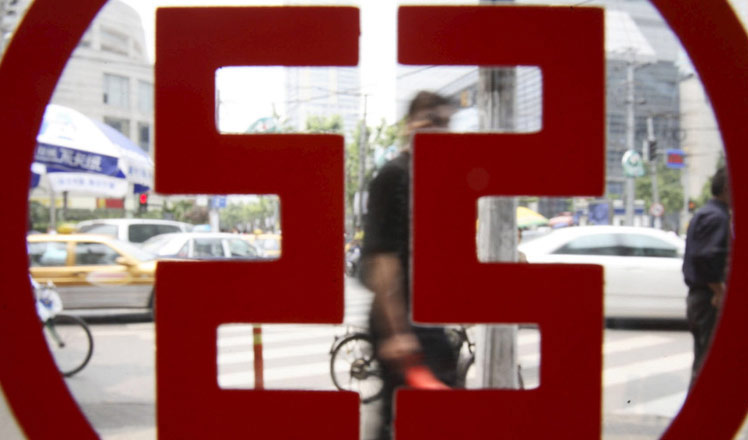No need for G20 to discuss overcapacity
Updated: 2016-08-29 07:40
By Yang Yanqing(China Daily)
|
||||||||
Companies' production and capacity investments are always based on cost and profit analyses. If there is no cost or price distortion, and no subsidies are provided, manufacturers can use their rational judgment to avoid overcapacity.
But what if subsidies are provided? When subsidies are clearly in place, products should not be sold below cost price, according to the World Trade Organization's anti-dumping regulations. The WTO has also set explicit rules against "state trading", meaning international mechanisms are in place to guard against dumping and subsidies, and there is no need for G20 to pay too much attention to the issue and seek alternative solutions. And, more importantly, China does not provide any overt subsidies for industries suffering overcapacity.
But how should we tackle overcapacity caused by underestimated costs associated with environmental and climate change? By "internalization" of externalities. As Zhou said: "Internalization of carbon dioxide emissions involves factoring in relevant externalities in the cost of energy consumption and pollution/emission generation-that is, if you need to emit CO2, you should pay upfront the money needed to absorb the resulting emissions. This is what is involved in internalization of carbon emissions."
It follows that the trade in carbon emissions offers a pragmatic solution to the issue. It essentially requires manufacturers to price into their products costs associated with environmental and climate change, and ultimately reflect them in output prices. In this way, overcapacity arising from externalities can also be tackled through market forces.
Therefore, international debate on overcapacity should focus on whether subsidies are provided, and whether the variables depend on environmental and climate change. China has been taking proactive measures in this regard as it suffers huge losses because of air pollution and abnormal weather.
Many critics argue the "Christmas tree" phenomenon, where items are constantly added to a list of "core" topics of discussion in much the same way decorations are added to the Christmas tree, is evident at the G20: diversion of attention from fixing the global financial crisis to promoting economic growth. As a result, the G20 has lost focus on very important matters, and its influence and leadership in the international community has weakened. Therefore, the G20 should focus on core issues in order to restore its leadership and power of execution, instead of discussing unnecessary issues.
As for general overcapacity, it should be a domestic, rather than global, issue and should be resolved within the concerned country's pricing and trade policy framework. The disputes should be settled in accordance with the WTO rules. And the G20 should focus on resolving global issues related to climate change (that is, costs and subsidies associated with climate change) through existing international mechanisms and make efforts to end once and for all the lingering effects of the global financial crisis.
The author is the deputy editor-in-chief of China Business News.
- Searching for the way out of overcapacity woes
- China's overcapacity cut not to harm global growth: spokesperson
- Deepening market reforms will help reduce overcapacity
- China steel mills seek remedy for overcapacity
- Local govts need to speed up overcapacity reduction: NDRC
- Truck manufacturers face overcapacity
- SOE reform pivotal to cutting China's overcapacity
- Industrial overcapacity to be reduced in Chongqing
- G20 trade ministers agree to tackle global steel overcapacity
- Experts warn of overcapacity crisis in China's ports
- Bolivian deputy interior minister killed by miners: report
- In photos: Great Dorset Steam Fair 2016
- Historical towns before and after Italy's earthquake
- Car bomb kills at least eight at police headquarters in Turkey
- Brazil's Senate begins Rousseff's impeachment trial
- Arts festival aims to unite cultures

 World's top 10 largest banks by assets
World's top 10 largest banks by assets
 Sand sculptures to welcome the G20 Summit
Sand sculptures to welcome the G20 Summit
 Historical towns before and after Italy's earthquake
Historical towns before and after Italy's earthquake
 College prepares 300 sleeping mats for parents
College prepares 300 sleeping mats for parents
 Ten photos from around China: Aug 19 – 25
Ten photos from around China: Aug 19 – 25
 Top 5 fitness bands in customer satisfaction
Top 5 fitness bands in customer satisfaction
 Orangutan goes shopping in Southwest China
Orangutan goes shopping in Southwest China
 Prince William and Kate visit charity orgarnization
Prince William and Kate visit charity orgarnization
Most Viewed
Editor's Picks

|

|

|

|

|

|
Today's Top News
Trump outlines anti-terror plan, proposing extreme vetting for immigrants
Phelps puts spotlight on cupping
US launches airstrikes against IS targets in Libya's Sirte
Ministry slams US-Korean THAAD deployment
Two police officers shot at protest in Dallas
Abe's blame game reveals his policies failing to get results
Ending wildlife trafficking must be policy priority in Asia
Effects of supply-side reform take time to be seen
US Weekly

|

|







